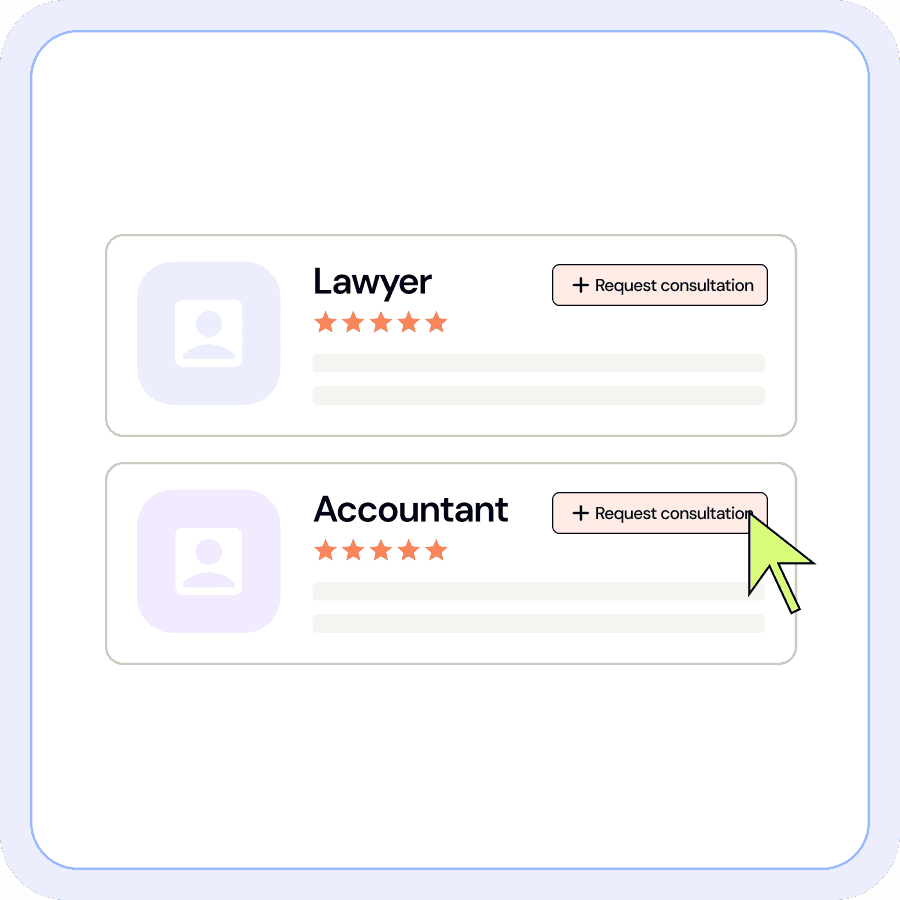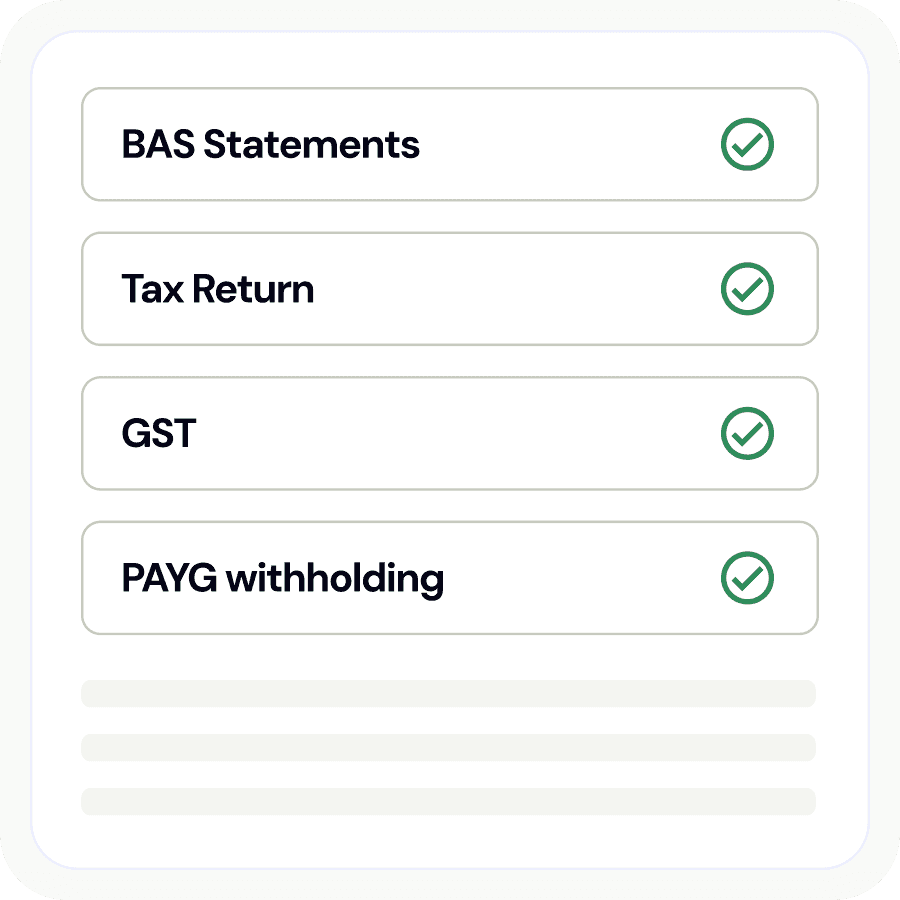As a business owner in Australia, are you finding the process of lodging Business Activity Statements (BAS) a headache? Juggling GST, PAYG, and other tax obligations can be complex and time-consuming. However, accuracy throughout the process is critical for compliance.
This article will guide you through the common mistakes business owners make when lodging BAS and provide actionable strategies for ensuring accuracy throughout the process.
Table of Contents
The Purpose of a Business Activity Statement
A Business Activity Statement (BAS) is a form your business must submit to the Australian Taxation Office (ATO) to report your tax obligations. If your business has an Australian Business Number (ABN) and is registered for Goods and Services Tax (GST) credits, you’ll automatically receive a BAS.
Through BAS, you declare your business financial activities, primarily focused on taxes related to sales and purchases. It includes information about Goods and Services Tax (GST), Pay As You Go (PAYG) withholding, PAYG installments, and Fringe Tax Benefits (FBT).
Accurate BAS submissions are essential for several reasons:
- Preventing audits: Accuracy in your BAS can reduce the likelihood of an ATO audit, saving time and resources.
- Avoiding penalties: Filing an accurate BAS helps you avoid penalties and fines for errors or late submissions.
- Managing cash flow: An up-to-date BAS helps track fees, sales, expenses, wages, and costs. When you keep up-to-date and provide accurate reporting, you will have access to the overall state of your business.
Why BAS accuracy is critical
BAS accuracy is not just a matter of compliance; it’s fundamental to the financial health and stability of your business. Inaccurate BAS submissions can lead to a range of negative consequences, from financial penalties to damaged credibility.
Avoiding ATO penalties and fines
One of the most immediate and tangible consequences of inaccurate BAS submissions is the risk of penalties and fines from the ATO. The ATO imposes penalties for failing to lodge your BAS on time or for providing incorrect information. These penalties can vary depending on the size of your business and the severity of the error.
- Small businesses: Face a penalty of one unit ($110) for each set of 28 days the BAS is late, up to a maximum of $550.
- Medium-sized entities (turnover between $1 million and $20 million): Face double the penalty of a small business.
- Large businesses (turnover over $20 million): Face a penalty of five times the penalty unit.
- Major global businesses: Face a penalty of 500 times the penalty unit.
These penalties can quickly add up, creating a significant financial burden for your business. Accurate BAS lodgement ensures that you avoid these unnecessary costs.
Maintaining cash flow and financial stability
Accurate BAS reporting is crucial for maintaining healthy cash flow and overall financial stability. When your BAS is accurate, you can be sure that you are only paying the correct amount of GST, PAYG withholding, and other taxes.
Additionally, inaccurate BAS submissions can lead to delays in receiving refunds from the ATO. If you have a tax debt or fail to fill out all necessary information, your refund may be withheld. This can disrupt your cash flow.
Ensuring compliance and avoiding audits
Compliance with tax laws is essential for any business operating in Australia. Inaccurate BAS submissions can raise red flags and increase the likelihood of an audit from the ATO.
During an audit, the ATO will scrutinise your financial records and BAS submissions to ensure that you have accurately reported your taxes. If the ATO finds errors or discrepancies, you may be subject to additional penalties and interest charges.
Accurate financial reporting and informed decision-making
BAS is not just a tax compliance document; it’s also a valuable source of financial information about your business. Accurate BAS submissions provide a clear and reliable snapshot of your business’s financial performance, including sales, expenses, and tax obligations.
Protecting business credibility
Inaccurate BAS submissions can damage your business’s credibility with stakeholders, including customers, suppliers, and investors. When your BAS is accurate, it demonstrates that you are a responsible and trustworthy business owner.
Common BAS mistakes and how to avoid them
Several common mistakes can lead to inaccuracies in your BAS. Knowing these pitfalls and how to avoid them is crucial for maintaining compliance and financial health.
Incorrect GST calculations
Calculating GST accurately can be complex, especially for businesses with a variety of products or services. Errors often arise from misclassifying items or failing to account for GST-free sales.
How to avoid: Implement robust accounting practices and use accounting software that automatically calculates GST. Regularly update your software to reflect changes in tax laws.
Late lodgement
Failing to lodge your BAS on time can result in penalties, regardless of whether you owe money.
How to avoid: Set reminders and use digital calendars to track due dates.
Missing GST credits
Overlooking GST credits on expenses can lead to overpaying taxes. GST on ommon missed deductions include business expenses, home office costs, and some overseas digital subscriptions.
How to avoid: Maintain detailed records of all business expenses and stay updated on the latest ATO regulations regarding eligible GST credit claims.
Incorrect PAYG withholding
Errors in calculating and reporting PAYG withholding can lead to penalties and potential issues with employees.
How to avoid: Use payroll software that automates PAYG calculations. Stay informed about changes to tax rates and thresholds.
Data entry errors
Simple data entry mistakes can have significant consequences on your BAS.
How to avoid: Double-check all data entries before submitting your BAS. Use automated data entry tools where possible to reduce human errors.
Misunderstanding tax laws
Tax laws can be complex and subject to change. Misunderstanding these laws can lead to unintentional errors on your BAS.
How to avoid: Attend workshops or seminars on tax compliance. Consider consulting with a registered BAS agent, who can help you navigate BAS complexities.
7 tips to ensure BAS accuracy
Ensuring BAS accuracy requires a combination of diligence, the right tools, and professional expertise. Here are some steps you can take to double-check your BAS accuracy before submission.
1. Reconcile your records
- Compare your bank statements, sales invoices, and expense receipts to your accounting records.
- Ensure that all transactions are properly recorded and classified.
- Exclude any transactions or details that should not be included on your BAS statement.
2. Review GST calculations
- Double-check your GST calculations to ensure that you have correctly applied the GST rate to taxable sales.
- Verify that you have claimed GST credits only for eligible purchases.
- Pay close attention to transactions that may be GST-free or input-taxed.
3. Verify PAYG withholding
- Ensure that you have accurately calculated and reported PAYG withholding for all employees and contractors.
- Reconcile your payroll records with your BAS to identify any discrepancies.
- Stay up-to-date with changes to tax rates and thresholds.
4. Check for missing deductions
- Review your records to identify any eligible deductions that you may have missed.
- Keep detailed records of all business expenses to support your claims.
5. Use accounting software
- Invest in reliable accounting software that automates many of the tasks involved in preparing your BAS.
- Use the software’s reporting features to generate accurate financial reports.
- Ensure that your software is regularly updated to reflect changes in tax laws.
6. Implement record-keeping best practices
- Maintain accurate and organised records of all business transactions.
- Use digital tools to store and manage your records securely.
- Establish a system for regularly backing up your data.
7. Seek professional advice
- Consider engaging a registered tax agent or accountant to review your BAS before submission.
- A tax professional can help you identify errors, claim all eligible deductions, and ensure compliance with tax laws.
Lawpath offers access to experienced tax professionals who can provide expert advice and assistance with your BAS.
FAQs
What happens if I lodge my BAS late?
If you lodge your BAS late, you may have to pay a series of fines, with the amount depending on the size of your business.
Can I amend a submitted BAS?
Yes, you can amend a submitted BAS if you find an error. You’ll need to lodge a new, revised BAS with the correct information.
How often do I need to lodge a BAS?
The frequency of lodging your BAS depends on your business’s GST turnover. You may need to lodge monthly, quarterly, or annually.
What records should I keep for BAS?
You should keep records of all sales, purchases, expenses, and other transactions related to your business. These records should be accurate, organised, and easily accessible.
Do separate businesses need separate activity statements?
Yes, each separate business with its own ABN needs to lodge its own activity statement.
BAS and Business Tax Compliance
BAS accuracy is paramount for your business’s financial health and tax compliance. If you are looking to avoid common mistakes, implement best practices for record-keeping, and seek professional advice when needed, look no further than Lawpath, where we connect you with a registered BAS agent, who will simplify your BAS lodgement and tax compliance.








